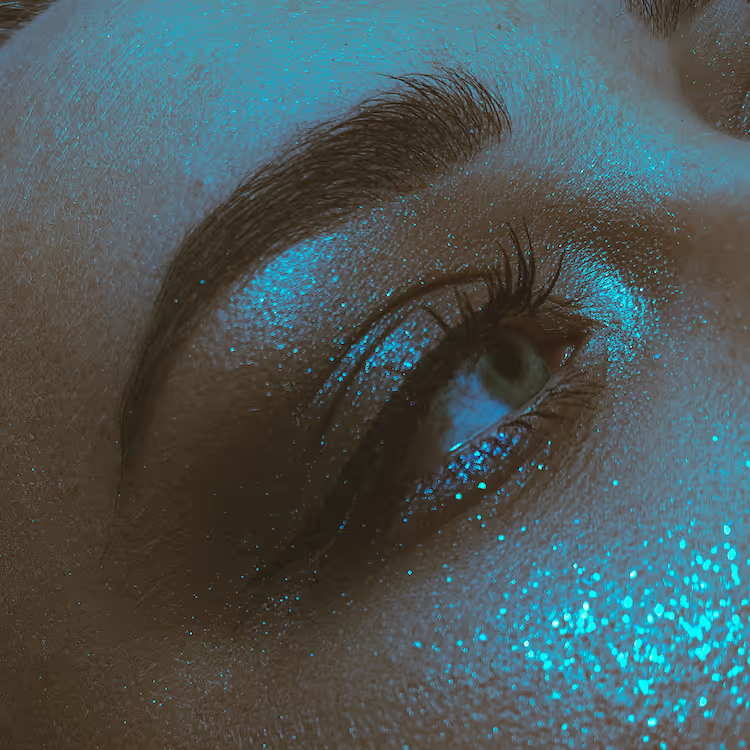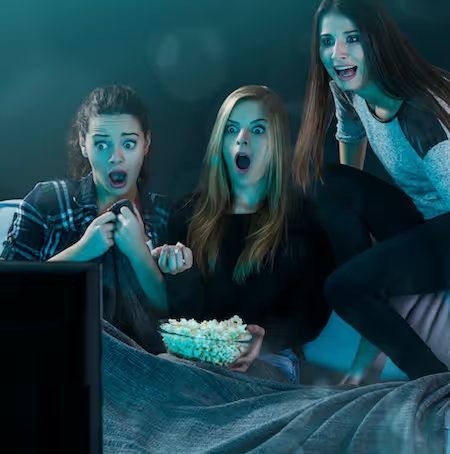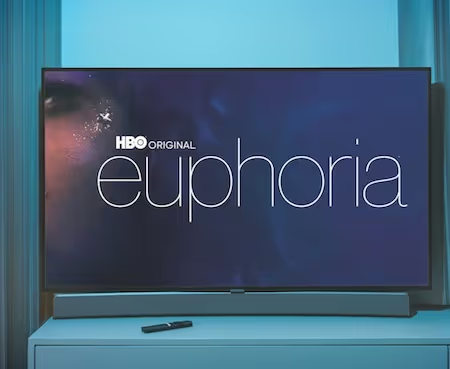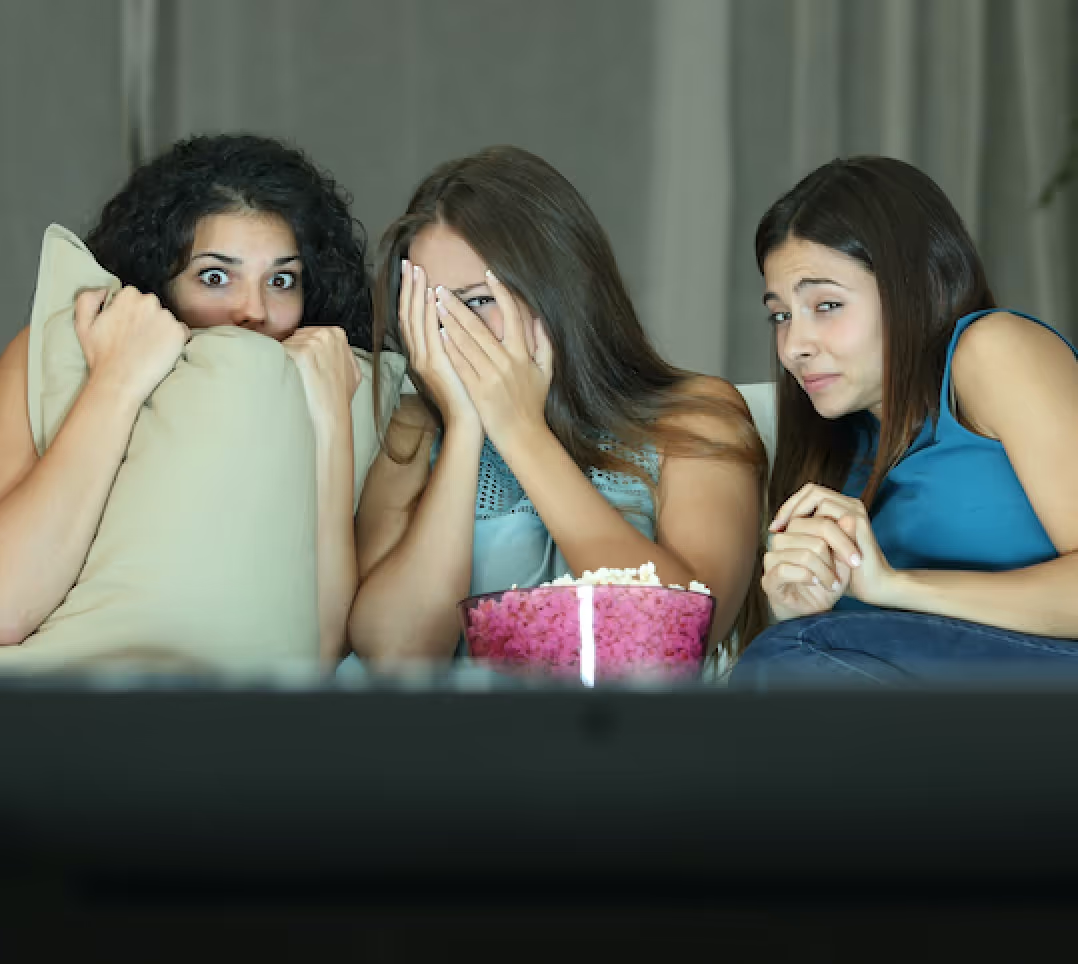


The Screenagers’ Tech Talk Tuesday blog from two weeks ago provided four questions for teens to answer regarding the HBO show Euphoria. As intended, the questions sparked conversations among adults and teens, and we got many thoughtful answers from teens in the questionnaire.
Before I get into the teen responses, let me mention a few concerning things I noted.
One is that only about 5% of respondents mentioned anything about the sexual violence that saturates the show. This finding highlights the need to create time to discuss this topic with our teens.
For example, one mom knows that the show has a sex scene involving choking — and the mom gently brings this up and started a conversation about violence, pornography and teen life. I know, I know, we never thought we would have to talk with our teens about choking.
Another concerning finding is that around a quarter of teens say that they think the show is “realistic.” There are, of course, some elements of truth in the show but it is extremely dramatized — one shocking event after another.
After doing this qualitative questionnaire, it is even clearer to me that we need a nationally representative survey of how teens regard the show. Ultimately data could, among other things, help create a discussion guide to spark needed conversations beyond the four questions I asked in my recent blog post.
Let's get to those four questions now and the responses from teens. Please thank your teens for me and share these responses with them.
About 80% of teens said they see some type of content regarding the show ranging from pretty often to very often.
In particular, teens mentioned Instagram Reels, TikTok and YouTube as key places they see memes and clips from the show. YouTube made particular sense to me because when I researched Euphoria for these blogs, A.I. was pumping in all sorts of Euphoria media into my YouTube homepage and side panel — mostly scenes from the show and interviews with the stars.
Learn more about showing our movies in your school or community!
Join Screenagers filmmaker Delaney Ruston MD for our latest Podcast

Learn more about our Screen-Free Sleep campaign at the website!
Our movie made for parents and educators of younger kids
Learn more about showing our movies in your school or community!
17-year-old wrote: “The Insta explore page is flooded with Euphoria stuff.”
14-year-old wrote: “Every 20 videos on TikTok.”
18-year-old wrote: “I see memes everywhere.”
A group of teens who answered the questions together reported that people post shocking memes and videos from certain scenes.
I wanted teens to think about this question because I want all youth to ask themselves this question anytime they are about to watch emotionally heavy content. It would be a huge win if they could get into the habit of stopping and thinking: “Why do I want to watch this? Do I really want to watch this right now?”
There were many thoughtful responses to this question. The following specific responses are in line with the main themes that came out.
15-year-old wrote: “Because people like the makeup and clothing that the girls wear, the actors or actresses and once they start watching it they don't want to stop since they want to finish the story and a lot of people have celebrity crushes on the actors/actresses like Jacob Elordi or Zendaya, and they like to watch them on screen.”
13-year-old wrote: “Because it’s trending and no one wants to miss out.”
15-year-old wrote: “I think because it interests us to feel all of these emotions at once.”
17-year-old wrote: “Everyone at school watches it and talks about how good the show is.”
Many teens mentioned that shows today are much more intense than their parents’ days, and therefore they are more desensitized to all of it than their parents. Sadly, this is very true, and over the past 2 weeks, adults have written to me to make sure that I am aware of other deeply disturbing shows.
Learn more about showing our movies in your school or community!
Join Screenagers filmmaker Delaney Ruston MD for our latest Podcast

Learn more about our Screen-Free Sleep campaign at the website!
Our movie made for parents and educators of younger kids
Join Screenagers filmmaker Delaney Ruston MD for our latest Podcast
17-year-old wrote: “I think it is harder for adults to watch this because even though drugs and high school bullies were still around when they were growing up, it was never filmed exclusively and uncensored.”
13-year-old wrote: “Because they see these terrible things happening and especially parents want to protect their kids from these things in real life. Also teens have already seen shows with lots of these things from a young age.”
17-year-old wrote: “We’re so desensitized to violence.”
The responses to this question really surprised me, but it should not have in retrospect. It turns out that 95% or respondents felt that show creators do not have any responsibility to tone down what they create. Knowing that many teens have a strong sense of social justice, I thought more would said that creators do have a responsibility — particularly given that now more than ever it is so hard to prevent little kids from seeing mature and gruesome material on screens.
Finally, the fact that many respondents said that parents should be responsible for controlling what is seen, is surprising, for teens know better than anyone, that if they want to find a way to watch something these days, it can be very hard to prevent that as a parent (not impossible, but very hard).
17-year-old wrote: “I don’t think the producers are responsible because there are adequate parental controls and they should be able to make whatever they want. It should be rated so that parents can keep kids from watching if they don’t want them to.”
14 & 16-year-olds wrote together: “Yes, the show is marketed towards teens who may be influenced by the topics shown. If they haven’t experienced these situations in real life, unrealistic expectations surrounding them may be formed and lead to bad decisions.”
17-year-old wrote: “They should put more warnings in front of it but they don’t bear responsibility to tone it down.”
15-year-old wrote: “If you don’t want your kid watching this shit, then don’t let them, or sit down with them and talk about it. It’s just that easy. Treat your kids like adults and have a conversation with them eye to eye, and reach a compromise.”
As we’re about to celebrate 10 years of Screenagers, we want to hear what’s been most helpful and what you’d like to see next.
Please click here to share your thoughts with us in our community survey. It only takes 5–10 minutes, and everyone who completes it will be entered to win one of five $50 Amazon vouchers.
The Screenagers’ Tech Talk Tuesday blog from two weeks ago provided four questions for teens to answer regarding the HBO show Euphoria. As intended, the questions sparked conversations among adults and teens, and we got many thoughtful answers from teens in the questionnaire.
Before I get into the teen responses, let me mention a few concerning things I noted.
One is that only about 5% of respondents mentioned anything about the sexual violence that saturates the show. This finding highlights the need to create time to discuss this topic with our teens.
For example, one mom knows that the show has a sex scene involving choking — and the mom gently brings this up and started a conversation about violence, pornography and teen life. I know, I know, we never thought we would have to talk with our teens about choking.
Another concerning finding is that around a quarter of teens say that they think the show is “realistic.” There are, of course, some elements of truth in the show but it is extremely dramatized — one shocking event after another.
After doing this qualitative questionnaire, it is even clearer to me that we need a nationally representative survey of how teens regard the show. Ultimately data could, among other things, help create a discussion guide to spark needed conversations beyond the four questions I asked in my recent blog post.
Let's get to those four questions now and the responses from teens. Please thank your teens for me and share these responses with them.
About 80% of teens said they see some type of content regarding the show ranging from pretty often to very often.
In particular, teens mentioned Instagram Reels, TikTok and YouTube as key places they see memes and clips from the show. YouTube made particular sense to me because when I researched Euphoria for these blogs, A.I. was pumping in all sorts of Euphoria media into my YouTube homepage and side panel — mostly scenes from the show and interviews with the stars.
17-year-old wrote: “The Insta explore page is flooded with Euphoria stuff.”
14-year-old wrote: “Every 20 videos on TikTok.”
18-year-old wrote: “I see memes everywhere.”
A group of teens who answered the questions together reported that people post shocking memes and videos from certain scenes.
I wanted teens to think about this question because I want all youth to ask themselves this question anytime they are about to watch emotionally heavy content. It would be a huge win if they could get into the habit of stopping and thinking: “Why do I want to watch this? Do I really want to watch this right now?”
There were many thoughtful responses to this question. The following specific responses are in line with the main themes that came out.
15-year-old wrote: “Because people like the makeup and clothing that the girls wear, the actors or actresses and once they start watching it they don't want to stop since they want to finish the story and a lot of people have celebrity crushes on the actors/actresses like Jacob Elordi or Zendaya, and they like to watch them on screen.”
13-year-old wrote: “Because it’s trending and no one wants to miss out.”
15-year-old wrote: “I think because it interests us to feel all of these emotions at once.”
17-year-old wrote: “Everyone at school watches it and talks about how good the show is.”
Many teens mentioned that shows today are much more intense than their parents’ days, and therefore they are more desensitized to all of it than their parents. Sadly, this is very true, and over the past 2 weeks, adults have written to me to make sure that I am aware of other deeply disturbing shows.
17-year-old wrote: “I think it is harder for adults to watch this because even though drugs and high school bullies were still around when they were growing up, it was never filmed exclusively and uncensored.”
13-year-old wrote: “Because they see these terrible things happening and especially parents want to protect their kids from these things in real life. Also teens have already seen shows with lots of these things from a young age.”
17-year-old wrote: “We’re so desensitized to violence.”
The responses to this question really surprised me, but it should not have in retrospect. It turns out that 95% or respondents felt that show creators do not have any responsibility to tone down what they create. Knowing that many teens have a strong sense of social justice, I thought more would said that creators do have a responsibility — particularly given that now more than ever it is so hard to prevent little kids from seeing mature and gruesome material on screens.
Finally, the fact that many respondents said that parents should be responsible for controlling what is seen, is surprising, for teens know better than anyone, that if they want to find a way to watch something these days, it can be very hard to prevent that as a parent (not impossible, but very hard).
17-year-old wrote: “I don’t think the producers are responsible because there are adequate parental controls and they should be able to make whatever they want. It should be rated so that parents can keep kids from watching if they don’t want them to.”
14 & 16-year-olds wrote together: “Yes, the show is marketed towards teens who may be influenced by the topics shown. If they haven’t experienced these situations in real life, unrealistic expectations surrounding them may be formed and lead to bad decisions.”
17-year-old wrote: “They should put more warnings in front of it but they don’t bear responsibility to tone it down.”
15-year-old wrote: “If you don’t want your kid watching this shit, then don’t let them, or sit down with them and talk about it. It’s just that easy. Treat your kids like adults and have a conversation with them eye to eye, and reach a compromise.”
Sign up here to receive the weekly Tech Talk Tuesdays newsletter from Screenagers filmmaker Delaney Ruston MD.
We respect your privacy.
The Screenagers’ Tech Talk Tuesday blog from two weeks ago provided four questions for teens to answer regarding the HBO show Euphoria. As intended, the questions sparked conversations among adults and teens, and we got many thoughtful answers from teens in the questionnaire.
Before I get into the teen responses, let me mention a few concerning things I noted.
One is that only about 5% of respondents mentioned anything about the sexual violence that saturates the show. This finding highlights the need to create time to discuss this topic with our teens.
For example, one mom knows that the show has a sex scene involving choking — and the mom gently brings this up and started a conversation about violence, pornography and teen life. I know, I know, we never thought we would have to talk with our teens about choking.
Another concerning finding is that around a quarter of teens say that they think the show is “realistic.” There are, of course, some elements of truth in the show but it is extremely dramatized — one shocking event after another.
After doing this qualitative questionnaire, it is even clearer to me that we need a nationally representative survey of how teens regard the show. Ultimately data could, among other things, help create a discussion guide to spark needed conversations beyond the four questions I asked in my recent blog post.
Let's get to those four questions now and the responses from teens. Please thank your teens for me and share these responses with them.
About 80% of teens said they see some type of content regarding the show ranging from pretty often to very often.
In particular, teens mentioned Instagram Reels, TikTok and YouTube as key places they see memes and clips from the show. YouTube made particular sense to me because when I researched Euphoria for these blogs, A.I. was pumping in all sorts of Euphoria media into my YouTube homepage and side panel — mostly scenes from the show and interviews with the stars.

Many young people and adults love horror films and talk about how they love the feeling of being scared. This is so very different from me. I am not at all a fan. This week I have been thinking about ways to talk with kids about when horror in movies, TV shows, and online, in general, go too far.
READ MORE >
I find HBO’s Euphoria incredibly disturbing and know that although so many of our kids have watched it, many parents never have. Today, I offer a way into a conversation with youth about the show’s topics and popularity.
READ MORE >
The intensity of gore and shockingly disturbing violence in popular shows and our kids are often freaked out by gore, but they become increasingly accustomed to it with age. For many teens, it can be quite appealing. So today, I’m interested in looking at where we are at this moment in time when it comes to violence in shows.
READ MORE >for more like this, DR. DELANEY RUSTON'S NEW BOOK, PARENTING IN THE SCREEN AGE, IS THE DEFINITIVE GUIDE FOR TODAY’S PARENTS. WITH INSIGHTS ON SCREEN TIME FROM RESEARCHERS, INPUT FROM KIDS & TEENS, THIS BOOK IS PACKED WITH SOLUTIONS FOR HOW TO START AND SUSTAIN PRODUCTIVE FAMILY TALKS ABOUT TECHNOLOGY AND IT’S IMPACT ON OUR MENTAL WELLBEING.
